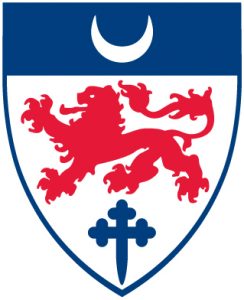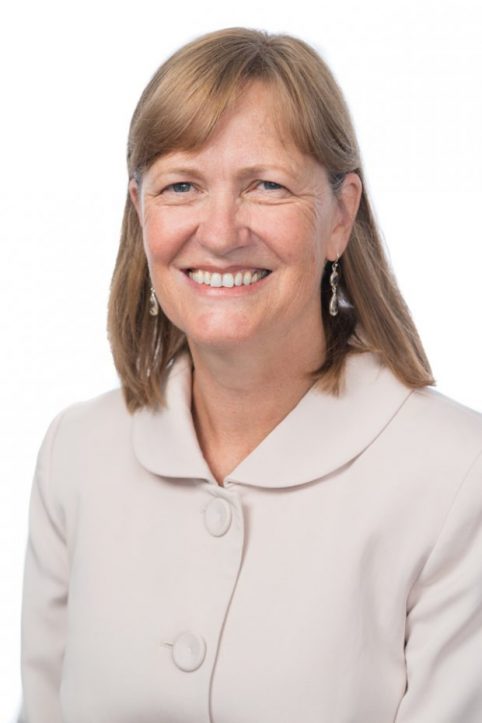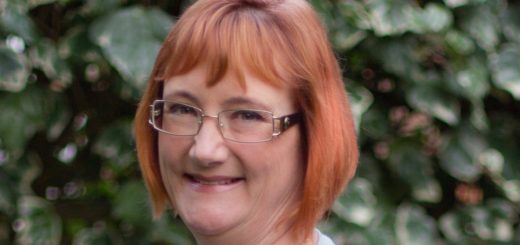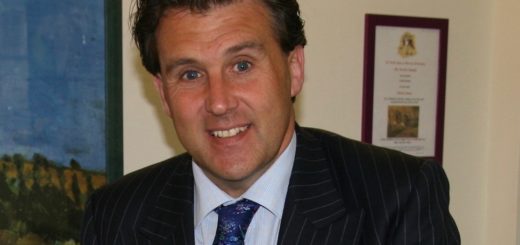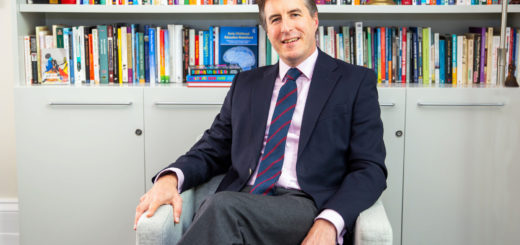An Exclusive Interview with the Headmistress of Dwight School, Mrs Alison Cobbin
Mumsinthewood interviewed Mrs Alison Cobbin, the Headmistress of Dwight School on 02 February 2021. She was clearly passionate about the school and what it stood for and came across as a head who really believes in igniting curiosity in children, helping them become more able to critically evaluate and analyse their work and that of their peers and be more confident in their learning journey.
Mrs Cobbin started her teaching career having been inspired to help children with special needs in a school for deaf and blind children where she worked. She was a house mother to two disabled boys which opened her eyes to a a new world. Wanting to make a difference and teach children with special needs, Mrs Cobbin trained as a teacher and found how much she loved being in the classroom and the rest as they say, was history.
Having taken some years out to raise her family, Mrs Cobbin moved from Australia to London and stumbled on to the IB programme which resonated with her personal ethos in terms of both how children should be taught and her own philosophy. She felt that compared to the traditional British system, the IB program gave children the opportunity to prepare for life after school and university. Explaining the programme Mrs Cobbin was clear that the younger a student starts, the better it is. The subjects covered are similar to those on the national curriculum and the programme allows children to fit in to any IB programme anywhere in the world if they need to move countries.
Question:
Was Dwight always an international school or did it become one after it became part of the Dwight Group of International Schools? If so, what was the thinking behind changing to a school that offered the IB with quite a few international schools in London already?
Answer:
The decision to become an IB school was made in 1995 when the Upper School was planning to open a sixth form (previously ending at 16). A-levels were considered, but rejected in favour of the more forward looking IB Diploma and influenced by the Dwight School in New York, which had been an IB school since 1980. An IB school is not the same as an international school (you can be an international school and not offer the IB programmes and vice versa), but after the introduction of the IB Diploma in 1996 the school attracted more and more international families and soon became the vibrant mix of local and international families that it is today. We are now an international school not only because we offer the IB programmes, but also because we are international in make-up, global in outlook and promote international-mindedness in our learners.
We are privileged to be part of the internationally renowned Dwight family of schools with campuses in New York, Seoul, Dubai, and Dwight Global Online School. We share the same Dwight pillars of personalised learning, community and global vision. We also share the same commitment to igniting the spark of genius in every child. This means that our students are encouraged to pursue their own passions and we customize the educational journey for each.
Question:
How vastly does the IB system differ from the traditional British system? How easy is it for a child to switch between the two systems if necessary? What does the course content involve at each stage of the school?
Answer:
The founders of the IB included a collaborative group of educators that represented many countries, including the UK. The IB has always drawn on best practices from education from around the world to design the framework for its curriculum; preparing its students to be lifelong learners. Dwight School’s IB programme draws on UK National Curriculum references and themes as a starting point. The Early Years Foundation Stage (EYFS) framework is also followed for those at that stage. However, whereas the National Curriculum is often linear in the way it teaches a subject, the IB offers more interconnected and holistic learning between subjects which is something the UK Government is also leaning towards in recent years. So for example, in the Primary Years Programme (PYP) students could be learning about the topic of Governance and their maths could then involve creating games using counters to understand division, surveys that involve manipulating mathematical data; thinking about Communism and Capitalism and how the counters would be divided equally or not.
Students are also encouraged to take their learning further according to their interests. So for example, after learning about Explorers as a subject in Year 4, students pick a personal inquiry of their choosing e.g., a particular Explorer or modern map technology to research and present about. This keeps the subjects very exciting for both teachers and students alike and gives them research, analysis and presenting skills at an early age. It also provides a means for international students to explore these themes as they may relate to their home country or culture.
Within the IB the aim is also for true conceptual understanding. e.g., in Maths rather than rote learning, students are taught several methods of long multiplication and can choose which one resonates. Students are taught to understand the authentic application of mathematical concepts. The IB is not solely exam based learning i.e., memorising facts to take a test. It is also about enabling students to access lifelong learning skills such as citing sources and critical thinking but also gaining resilience, independence and responsibility with the aim of gaining experience in presenting their learning using methods that are appropriate for the audience.
The IB was originally conceived with the agility necessary to enable students of different countries to move in and out of the programme with relative ease. We have had students coming from top State and independent schools e.g., Haberdashers, Lochinver, Dame Alice Owen and also successfully transitioned to the UK system e.g., JCoss, Wren, City of London and Highgate although most stay and undertake the IB Diploma.
The Kindergarten and Reception classes are aligned to the EYFS curriculum. From the age of three years the PYP is introduced alongside the EYFS. Both programmes focus on the importance of learning through play and a commitment to structured, purposeful inquiry, as it underpins all development and learning for young children. Our Nursery is also expanding its offering to 2 year olds in 2021.
The PYP focuses on the development of the whole child in the classroom and in the world outside. From Year 1, students study Language (i.e., English),) an Acquired Language (French is introduced), Maths, Unit of Inquiry (six broad themes are prescribed in the IB PYP framework; they study each unit for about 4-6 weeks and learning may encompass Sciences including Environmental Sciences, Human Body, Plants, Solar System, Humanities including History, Geography, Economics, Comparative Religions and Belief Systems, World Affairs and Technology and the Expressive Arts), ICT and Personal/Social Ed. Specialist teachers offer PE, Art, Music, French and, from Year 3, they also learn Spanish. They also all attend Forest School once a week.
The PYP culminates in the Year 6 Exhibition where students; normally working in small collaborative groups, choose any topic and work on it for 12 weeks (like a dissertation) with a mentor and their teachers guiding them. They research, interview relevant stakeholders, work with peers, create something artistically, present their learning and use various ICT tools and give back to the community e.g., by raising awareness; since giving back to the community is key to the IB and curriculum at Dwight.
The Middle Years Programme (MYP) is for students 11-16. It provides a framework of
academic challenge and life skills through embracing and transcending traditional school subjects. Students at Dwight study: Language/Literature (English), Modern Foreign Languages (Mandarin, French or Spanish), Maths, Individuals and Societies (this will include Geography/History/RE/Sociology/Economics, Politics), Art, Music, Design, Laboratory-based Science, Drama, Physical and Health Education. Students may choose up to 2 languages. IT is used throughout the curriculum.
MYP teachers use internationally published IB assessment criteria as a benchmark for their grading. They provide a variety of assessment tasks, such as open-ended activities, investigations, organised debates, hands-on experimentations and reflections; allowing students to demonstrate their achievement according to the determined criteria. The MYP culminates with the submission of a Personal Project in Year 11; an independent, eight-month long assignment that showcases the skills that our students have developed throughout the five years of their MYP studies. The project is a rich opportunity for students to create an extended piece of work that challenges their own creativity and thinking about personal issues and to share their experiences throughout the process with the school community at an exhibition. Graded against a rigorous set of IB criteria, the Personal Project is not only an integral part of the MYP, but also a continuation requirement for students moving toward the IB Diploma programme (DP).
The DP is for students aged 16 – 18 and provides a framework for academic rigour and innovation that encourages students to challenge themselves and to apply their broad range and depth of knowledge in the real world. The DP is the “gold standard” in pre-university preparation. It is highly regarded by leading universities worldwide for its challenging curriculum and for predicting student success in higher education. The DP at Dwight is designed to teach students a broad range of subjects, including several at a higher level and of their own choosing, ranging from experimental sciences and mathematics, to the arts, business and management, film, computer science and languages.
Further, it introduces students to philosophy through the compulsory IB Theory of Knowledge course where they explore the nature of knowledge and are challenged to reflect critically on diverse ways of knowing. Students are encouraged to explore the arts and creative thinking, physical activity, and community service through CAS (Creativity, Activity, and Service) requirements on a journey of self-discovery. Students are engaged in independent research through in-depth study and writing an extended essay (of 4000 words). The DP emphasises the development of the whole student intellectually, emotionally, physically, and ethically and empowers them to be entrepreneurial innovators.
Students entering the DP can select 6 subjects as part of the full Diploma certificate. These subjects span six subject areas: Language and Literature, Language Acquisition, Individuals and Societies, Sciences, Mathematics and the Arts. Students are able to select a combination of Higher Level and Standard Level courses out of these six groups. There is an option for students not to choose a subject from Group 6 (The Arts) and instead pick up an additional subject from another group. This is a popular choice with students wanting to go into medicine, veterinarianism or such disciplines that require two sciences, for example.
The IB Learner Profile is integral to the academic programme at Dwight and emphasises ten key characteristics that make for well-rounded global citizens. These are for students (and other stakeholders) to be: inquirers, thinkers, knowledgeable, risk takers, communicators, caring, balanced, open minded, principled and reflective.
Question:
What are the benefits of the IB curriculum? How does being in the IB programme from a young age help a student to adapt to university life? Would you say that it prepares a student better than a traditional system of education would?
Answer:
IB students tend to be better prepared for the transition to University as they have become adaptable, curious and agile workers, are used to working collaboratively, exercising initiative and creativity, are used to accessing and analysing lots of sources of information and research, present (orally, in writing and using a variety of technological means) and reflect on their learning from a young age.
IB students also tend to fare better in terms of University success. Indeed, the Higher Education Statistics Agency 2016 data shows that IB students are more likely than their A-Level peers to attend a top twenty university in the UK and receive a first-class honours degree. Further, Community Action and Service,Theory of Knowledge and writing the Extended Essay which are part of the Diploma are all hugely beneficial for university UCAS applications and discussing at interviews.
In terms of after University, the World Economic Forum also confirmed in 2020 that the future workforce will need to be problem solvers, critical thinkers, creative, have self and people management skills, emotional intelligence, exercise judgment, be service orientated, negotiators, proficient with technology and have cognitive flexibility. Similarly, the Confederation of British Industry has long emphasised the importance of broader skills such as resilience and communication. These are all skills firmly embedded in our IB curriculum at Dwight.
Question:
Dwight has several activities on offer at the school other than the traditional IB programme. Could you expand on what the school offers at each stage?
Answer:
Every Tuesday afternoon the MYP students undertake extra curricular activities with peers in other years; such as book club, TV programme and film making, music bands etc. Further, taking community action and giving back locally and globally is part of the curriculum at Dwight in all years and endeavours include planting trees in London and Nepal, becoming an eco accredited school and collaborating and working with a local care home which is a long standing partnership. Students attend Forest School in PYP and MYP. Students also participate in Spark Tank – a dragon’s den style entrepreneurship programme where they are encouraged to develop ideas to bring to market using Design Thinking methodologies. Past innovations have included creating a bionic arm and an app for students to help manage their homework. In their tutor time, students participate in debates, discuss current affairs and even learn how to balance their own finances at age 11! In PYP there are off timetable activities dedicated to developing extra curricular skills such as bike riding or first aid.
Science and Literature are embedded within the curriculum and each year to shine a light on them we have a celebratory week. Our Literacy week has included dressing up as book characters, learning simple stories in a range of different languages, inviting in well known authors and poets, inviting the children to complete book reviews for each other and various competitions. Our Science Week has involved inviting in scientists to interview, setting up large scale experiments across the school, hypothesising about outcomes and, concluding at the end of the week- working collaboratively to solve problems and test variables. Areas have included magnetism, friction, materials, sound electricity and many more.
Extracurricular activities and clubs on offer at Dwight also include participating in Model United Nations, Chess, Forest School, Dwight TV, Radio and Film, Archery, Coding, Science, Karate, Keep Fit and Music. Students are also encouraged to suggest their own ideas; with past suggestions including making their own formula one eco car.
Question:
What is the turnover like considering that there are so many expat families at the school?
Answer:
Dwight’s community demographics feature around half local students and half international students. Some international students stay at Dwight for 2-5 years with many choosing to permanently settle in London. Where students do move, our focus with families is on how relationships can adapt and be sustained even when friends move away; a useful skill for future university and workplace peers. Dwight’s individualised approach also enables teachers to help newly-arrived children adapt to the school, with consideration of their previous learning.
Question:
Do the smaller numbers of students impact on the school’s ability to participate in competitive sport and other academic competitions like for instance, national math or science competitions, inter-school football tournaments etc?
Answer:
Dwight students take part in a wide range of sports and participate in any number of national academic and extracurricular competitions. Besides local independent schools, Dwight students compete with other London international schools and occasionally in overseas international events. For highly able athletes, Dwight encourages students to become active with local teams or coaches and for the very serious competitors, Dwight has tailored and modified their schedules to enable them to devote the time necessary to train and compete nationally and internationally.
Question:
What does the school do to help children who may present as gifted and talented or who may need extra support?
Answer:
We are very experienced with gifted and talented students, are partnered with Potential Plus, and can offer acceleration/extension/bespoke timetables. Our “QUEST” personalised learning programme also supports students with mild needs with the emphasis on the fact that all children have different learning styles and skills and so all students’ work is differentiated according to their needs within the context of the IB Programmes. The Upper School has a dedicated team to focus on Gifted and Talented students and these staff members run professional development for teachers and liaise with the parents of those identified as Gifted and Talented.
Question:
What universities does the school feed into most?
Answer:
Students from Dwight School London benefit from an experienced and dedicated University Counseling team. This team includes our Dwight Global College Counselor who facilitates and supports those students applying to American institutions, of which there are many. There is no specific university that the school feeds into and it is really down to the student’s own interests, hopes and desires as to which direction and where they want to go to university. However, every year we do have students who are fed into the Russell Group Universities (including Oxbridge), as well as top universities overseas including; McGill (Canada), Northwestern, UCLA, Fordham and Boston College (America), as well as top universities in Japan like Waseda University.
Question:
How does the school tailor the curriculum to suit each individual child?
Answer:
Students are assessed upon arrival to establish their knowledge and skills and then an appropriate programme follows that is differentiated to suit the student’s ability. Through the IB programmes, the resources used for any given area of study can be selected to suit the intellectual capacity of the student. Dwight prides itself on really getting to know each one of our students and their families. We shape students’ education around them: how they best learn, where their skills lie, what sparks their interest, and how we can best help them succeed.
Question:
With such a large international community how does the school cater to the very different cultures and backgrounds of the different students? How easy is it for new students to find their feet?
Answer:
Dwight has long experience in welcoming international students and the school seeks to maintain a community that is open and welcoming to people from all over the world. There are strategies in place to help introduce and integrate new students and families from London and abroad. The IB curriculum helps to facilitate an approach where each student’s previous learning experience is honoured and considered. It is an important part of Dwight’s commitment to ‘personalised learning’. English as a Second Language programmes are also in place to support students not yet fluent in English.
Question:
How active is the parent community and how much support can new parents expect?
Answer:
There is a very active parent community called the Dwight Parent Association (DPA). They meet regularly (even virtually in lockdown or in groups of 6 where permitted). Coffee mornings are held each term. There are dinners, pub quizzes, London touring days and parents and students alike mingle at events such as the Summer and Winter Fairs, Welcome Back BBQ, Cakes Sales, International Evening (with food and music from around the world) or the Fun Run where money is raised for charity. New families are buddied up with existing families and students have a buddy to show them around when they arrive at Dwight and make them feel welcome. There is a real open door policy and close connection with parents and teachers at Dwight and parents are also encouraged to come in and share their culture and professional expertise with students.
Question:
What are the entrance requirements for entry to Dwight?
Answer:
Although there are no formal entrance exams at entry nor to proceed to the Upper School, we are looking at whether a student can demonstrate that they would benefit from and are likely to engage successfully with our IB education and demonstrate the IB learner profile attributes.
Admissions require families to complete an application form and provide previous school reports, references, personal statements from the student and their parents; after which the Admissions Committee will meet to discuss the application. Enrolments can take place throughout the academic year, subject to space.
Taster days can be arranged during the final stages of the application process whereby the student can come and meet their future classmates and teachers, experience school life and for Dwight to get to know the student better.
Open house/information sessions are also held each month (currently online) for families to find out more about our Lower and Upper Schools and meet teachers, parents and students.
Conclusion
With a diverse number of universities in an equally vast array of countries from the UK to Japan, from Europe to America being catered to at the school, Dwight is an international school that is growing in popularity in a transient world. An added bonus is that the school is now offering STEAM scholarships at Year 5 so that ay new entrants can not only avoid the dreaded 11+ exams but can also join the Junior school and have two solid years as an introduction to the IB systems prior to moving into the Senior school.
It is a school where teachers guide and are not afraid to learn from their students, where students extend themselves to explore and evaluate and analyse, where they learn to apply every lesson to the realities of life after school, where a maths project becomes intertwined with global issues, where learning is an attitude and not just a means to an end. Dwight school under the leadership of Mrs Alison Cobbin has an impressive level of dedication to individualised learning.



